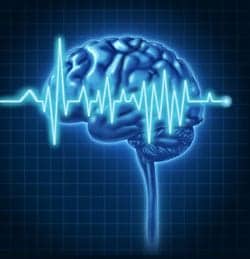Data from the American Soiciety of Hypertension, New York, demonstrates a link between short cycles of sleep, stroke, and silent cerebral infarct (SCI), or silent strokes, in elderly hypertensive patients, and although data suggest SCI to be more prevalent among patients with a longer duration of sleep, patients who experienced both SCI and short-sleep duration were at the greatest risk of stroke
In the study, shorter sleepers tended to be younger and have fewer SCI compared to longer sleepers.
In those patients who did not experience an SCI, there was no difference of the incidence of stroke between the patients with shorter versus longer sleep time; however, in patients who had an SCI, those with shorter sleep time had a higher incidence of stroke than the longer sleepers (p=0.001).
Out of a pool of 1,268 patients with hypertension who received ambulatory blood pressure monitoring, 932 patients were given a brain MRI to assess for SCI.
Researchers analyzed those patients using Cox proportional hazard models to calculate hazard ratios (HR) and 95% confidence interval of sleep-duration-associated risk for cardiovascular events, controlling for significant covariates. Patients were divided into five groups, according to sleep time. Sleep duration was classified into quintiles.
[Source: American Society of Hypertension]



